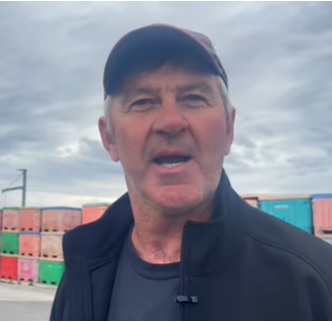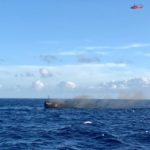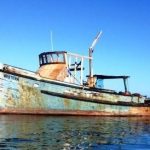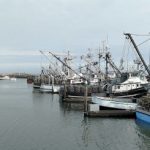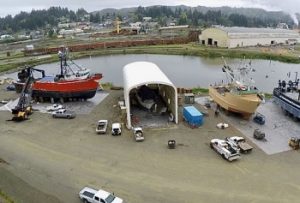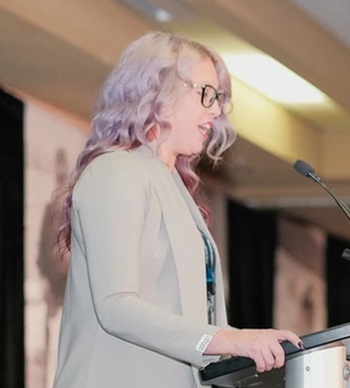 It’s good to know it’s there if needed, but neither Newfoundland and Labrador’s unionized fishery workers, nor the processors they sell to or work for, want to see the industry disrupted by organized labour strife. On Dec. 4, the provincial government made amendments to the Fishing Industry Collective Bargaining Act that will make it easier for the members of FFAW-Unifor, which represents both fish harvesters and plant workers, to take strike action, or for the members of the Association of Seafood Producers (ASP) to lock them out if they cannot agree on fish prices. The amendments were read for a third time in the House of Assembly, but Royal Assent has been deferred until the two sides indicate they wish to reclaim their constitutional rights to strike or lockout. more, >>CLICK TO READ<< 10:53
It’s good to know it’s there if needed, but neither Newfoundland and Labrador’s unionized fishery workers, nor the processors they sell to or work for, want to see the industry disrupted by organized labour strife. On Dec. 4, the provincial government made amendments to the Fishing Industry Collective Bargaining Act that will make it easier for the members of FFAW-Unifor, which represents both fish harvesters and plant workers, to take strike action, or for the members of the Association of Seafood Producers (ASP) to lock them out if they cannot agree on fish prices. The amendments were read for a third time in the House of Assembly, but Royal Assent has been deferred until the two sides indicate they wish to reclaim their constitutional rights to strike or lockout. more, >>CLICK TO READ<< 10:53Tag Archives: plant workers
Icewater Seafoods processes northern cod for the first time in 32 years
 For over three decades, Icewater Seafood’s Arnolds Cove fish plant has kept itself going processing fish from other countries. But on Feb 24, 2025, the plant processed its first N.L. offshore cod since the moratorium in 1992. Plant workers were thrilled this week to be processing local cod. Not only did it mean they get to work with fresher and higher quality fish, but it means more money will be coming their way. Janet Hynes has been at the plant for 38 years and remembers the day operations shut down due to the moratorium. “We were devastated,” said Hynes. “We didn’t really know what was going to happen at that time.” Over the past 32 years, quality control coordinator Brenda Hickey, said she never gave up hope. “I was thinking this is going to come back … and it did. We’re super excited,” she said. more, >>CLICK TO READ<< 09:41
For over three decades, Icewater Seafood’s Arnolds Cove fish plant has kept itself going processing fish from other countries. But on Feb 24, 2025, the plant processed its first N.L. offshore cod since the moratorium in 1992. Plant workers were thrilled this week to be processing local cod. Not only did it mean they get to work with fresher and higher quality fish, but it means more money will be coming their way. Janet Hynes has been at the plant for 38 years and remembers the day operations shut down due to the moratorium. “We were devastated,” said Hynes. “We didn’t really know what was going to happen at that time.” Over the past 32 years, quality control coordinator Brenda Hickey, said she never gave up hope. “I was thinking this is going to come back … and it did. We’re super excited,” she said. more, >>CLICK TO READ<< 09:41
Seafood sector is united in face of tariff threats, says N.L.’s fisheries minister
 A unified effort to navigate the Newfoundland and Labrador seafood industry through the uncertainty of U.S. tariff threats began on Wednesday, with more than two dozen people joining by video conference in the first fishery roundtable meeting. The meeting was chaired by Fisheries Minister Gerry Byrne, who described the discussions as “one of the best meetings I’ve ever hosted.” The meeting was spawned from a broader premier’s roundtable that was assembled last month in response to a threat from U.S. President Donald Trump to place a 25 per cent tariff on Canadian goods entering the U.S. market, including seafood. Joining the meeting were leaders in all sectors of the fishery, including union leaders, processors, harvesters, marketing specialists and the aquaculture industry. more, >>CLICK TO READ<< 18:42
A unified effort to navigate the Newfoundland and Labrador seafood industry through the uncertainty of U.S. tariff threats began on Wednesday, with more than two dozen people joining by video conference in the first fishery roundtable meeting. The meeting was chaired by Fisheries Minister Gerry Byrne, who described the discussions as “one of the best meetings I’ve ever hosted.” The meeting was spawned from a broader premier’s roundtable that was assembled last month in response to a threat from U.S. President Donald Trump to place a 25 per cent tariff on Canadian goods entering the U.S. market, including seafood. Joining the meeting were leaders in all sectors of the fishery, including union leaders, processors, harvesters, marketing specialists and the aquaculture industry. more, >>CLICK TO READ<< 18:42
Fishery in jeopardy: Trump tariff threat putting NL fishing season at risk
 The threat of looming American tariffs on Canadian exports doesn’t just have the Newfoundland and Labrador fishing industry concerned about bottom lines. There’s a worry if there can be a fishery at all. Often sides that are at odds with one another on many matters, both the association representing the province’s seafood processing companies and the union representing the province’s fish harvesters and plant workers held a joint news conference in St. John’s on Monday, Feb. 3, to discuss the situation the fishery finds itself with 25 per cent tariffs expected to be imposed on Canadian exports into the United States. A last-minute negotiation between Prime Minister Justin Trudeau and US President Donald Trump on Feb. 3 delayed the tariff threat for 30 days. more, >>CLICK TO READ<< 16:03
The threat of looming American tariffs on Canadian exports doesn’t just have the Newfoundland and Labrador fishing industry concerned about bottom lines. There’s a worry if there can be a fishery at all. Often sides that are at odds with one another on many matters, both the association representing the province’s seafood processing companies and the union representing the province’s fish harvesters and plant workers held a joint news conference in St. John’s on Monday, Feb. 3, to discuss the situation the fishery finds itself with 25 per cent tariffs expected to be imposed on Canadian exports into the United States. A last-minute negotiation between Prime Minister Justin Trudeau and US President Donald Trump on Feb. 3 delayed the tariff threat for 30 days. more, >>CLICK TO READ<< 16:03
Crab tie-up means plant workers turn to income support, says Opposition critic
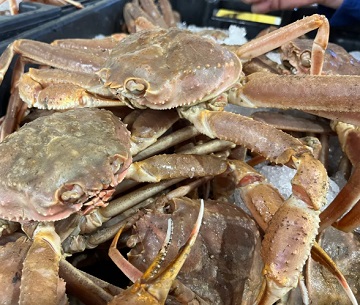 After weeks of protesting, including shutting down Confederation Building, fish harvesters scored big with concessions on who they could sell their catches to. The situation soured soon after, when the new crab price formula was revealed. Put forward by the Association for Seafood Producers, the floor price is set at $2.60 per pound and the harvester’s share is set at 37 per cent of market value above $8 per pound. Harvesters are refusing to go out on the water with the current formula. Bonavista MHA Craig Pardy called the situation unfortunate and said he’d hoped to avoid a repeat of last year, when there was a six-week delay to the start of the season. Pardy said he’s heard that more than 50 Bonavista plant workers have had their EI support elapse and are now without income. more, >>click to read<< 14:02
After weeks of protesting, including shutting down Confederation Building, fish harvesters scored big with concessions on who they could sell their catches to. The situation soured soon after, when the new crab price formula was revealed. Put forward by the Association for Seafood Producers, the floor price is set at $2.60 per pound and the harvester’s share is set at 37 per cent of market value above $8 per pound. Harvesters are refusing to go out on the water with the current formula. Bonavista MHA Craig Pardy called the situation unfortunate and said he’d hoped to avoid a repeat of last year, when there was a six-week delay to the start of the season. Pardy said he’s heard that more than 50 Bonavista plant workers have had their EI support elapse and are now without income. more, >>click to read<< 14:02
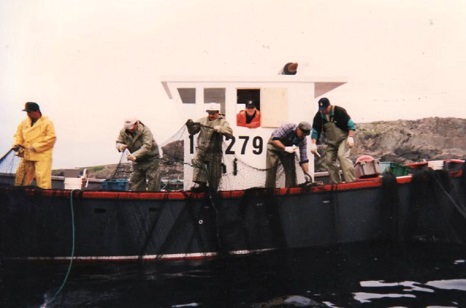
‘Like someone tore the guts out of me’: A look back in the 30 years since Crosbie shut down the cod fishery
Reg Butler, a 50-year-veteran fisherman from Bonavista, remembers those years well. The Butler family has a long history in the cod fishery in the town, a tradition being passed down from one generation to the next. Butler started going out fishing when he was nine. His father was a widow and had to take him out in the boat, along with his older brothers, because there was no one to take care of him. “When the moratorium was announced, everything was up in the air. Cod was our main source of income,” Butler said. “We had cod traps out. Who thought, when we took them in at the time, they’d never go in the water again? It was just like someone knocked the wind out of you. My father had fished up until he was in his 80s. The fish stocks were in decline, but it was still a shock to him, and us all, when it was shut down.” photos, >click to read< 08:26
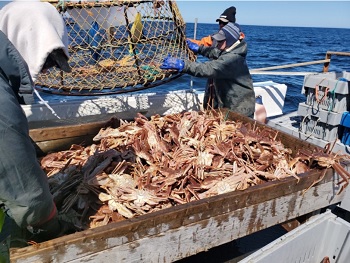
Good news for Newfoundland fishermen, plant workers, and processors in the snow crab fishery
The snow crab fishery should continue to be an economic bright spot for the Newfoundland and Labrador economy in 2021. The latest report from Fisheries and Oceans (DFO) science shows modest improvements in snow crab biomass in several fishing zones around the province. The good news from science is that the snow crab stocks appear to be recovering in some areas.,, Julia Pantin, DFO’s lead biologist for snow crab in the Newfoundland region, said the population of crabs becoming available to the fishery is expected to increase over the new two to four years in most areas. >click to read< 11:30
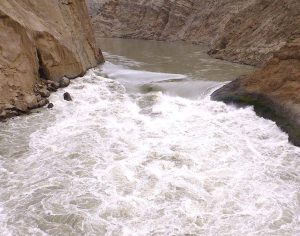
Salmon collapse hitting workers hard
Don Sananin has loved the sea and fishing since he started in the industry as a 17-year-old.,,,But after more than 50 years working as a commercial fisherman, the Burnaby man hasn’t seen a salmon season as grim as this year’s. Sananin, 70, who holds a licence for the area that includes the Fraser River to the west coast of Vancouver Island, hasn’t been out on the water yet. “There hasn’t been an opening,” he said. “The sockeye is the worst it’s ever been since the 1890s.”,,, “The impacts are on fishermen, plant workers, net menders, and reduction plant workers, from Lax Kw’alaams [in northern B.C.] all the way down to White Rock and all the places in between.” >click to read< 17:21

New DFO orders ‘hard pill to swallow’ for N.B. lobster fishermen
Lobster fishermen off the coast of Miscou Island, N.B., will spend Sunday morning hauling gear from the waters in order to comply with the latest fishing zone closures imposed by the Department of Fisheries and Oceans. On Friday afternoon, the DFO re-opened four areas previously closed to fishing due to the presence of right whales. But with more closures being imposed on Sunday, frustrations continue to mount. Carl Allen, president of the Maritime Fishermen’s Union, organized the most recent protest and met with LeBlanc on Friday.,,”I have a lot of respect for Minister LeBlanc, but we just don’t agree with the basis of the whole plan — it’s a hard pill to swallow,” he said.,, LeBlanc did offer the fishermen an alternative, however. He offered a paid training program for crew members and plant workers affected by these closures. >click to read<18:20

Sealing industry is much more than the sealers. Its other jobs, too
The sealing industry is like most industries in that it employs many more people than simply the primary producer.,, There are many hundreds of Canadians who are dependent on the sealers for parts of their income. That income is threatened by attacks on the sealers and the sealing industry. Who are these people? They are the businesses who sell fuel, groceries, insurance (both personal and vessel), rifles and ammunition, and tools of the trade to sealers. Not to mention shipyard workers who repair damaged sealing vessels. They are truckers who transport seals from landing ports to the plants and buy gas, insurance and food in the process, as well automobile dealers who sell those vehicles. Click here to read the op-ed Jim Winter, St. John’s 17:21
Lobster season opens on Northumberland Strait – Processors scramble to find plant workers
 The lobster fishery opening on the Northumberland Strait Tuesday as lobster processors deal with new federal regulations which limit how many temporary foreign workers can be hired. The new regulations could create problems processing this season’s catch. “Let’s face it — it’s tough work, not everybody’s cut out for it,” said Nat Richard. “And certainly a lot of our older workers are retiring and younger people today aren’t looking to work in fish plants.” Read the rest here 09:34
The lobster fishery opening on the Northumberland Strait Tuesday as lobster processors deal with new federal regulations which limit how many temporary foreign workers can be hired. The new regulations could create problems processing this season’s catch. “Let’s face it — it’s tough work, not everybody’s cut out for it,” said Nat Richard. “And certainly a lot of our older workers are retiring and younger people today aren’t looking to work in fish plants.” Read the rest here 09:34






